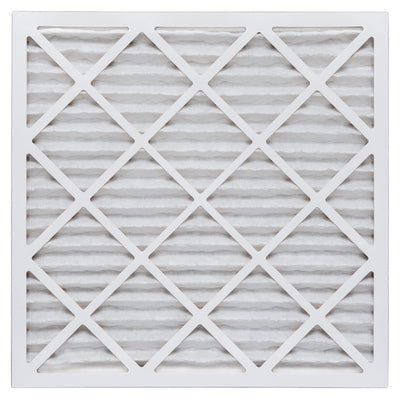Six Telltale Signs your AC is Overworked
Learn what to look for when your unit is not performing at its best
Who enjoys sweltering in the summer heat? If you want to ensure that your air conditioner continues to blow cool air in the depth of the summer months we layout 6 smart ways to tell if your AC unit is overworked.
Reasons your AC might be overworked
Improper Settings are on your thermostat
You can help your air conditioning unit work efficiently by keeping the thermostat set at a steady temperature. For the best efficiency, you should set the dial to a temperature that feels comfortable, but not too cold. The Department of Energy suggests that having a fan on and setting the temperature at 78 degrees is the perfect energy- saving method. Otherwise, the AC unit would have to kick on and off repeatedly all day to keep the temperatures low.
Wrong Unit Size
When you purchase a new air conditioner, it is necessary to match its size to the square footage of your home to avoid overworking the system. An improperly sized air conditioner will work to hard and too long as it attempts to cool the space. This will cause it to develop premature wear and damage that often leads to failure of internal parts.
Dirty or Wrong Size Air Filter
As the AC filter clogs with dirt and debris, the efficiency of the system plummets, causing you to pay extra money for less cooling power. In addition, the air conditioner blower has to work even harder than normal, which can lead to internal damage.
For best results, change your filter every one to three months on average, but check it monthly during high pollen counts or excessive dust. In addition, the wrong air filter size can cause your AC unit to be overworked. Always check the make and model of the unit and purchase the correct filters size accordingly. If your old filter does not have labels with the size, grab some tape measure or ruler and see our page on “How to Measure Your Air Filter”.
Clogged Drain Lines
Over time, the drain lines in air conditioners get clogged with debris. Once the drain lines are clogged, the air conditioner cannot adequately remove moisture from the air to cool it to optimal temperatures. As apart of your seasonal cleaning, try to clear out the drain lines to keep your AC unit efficiently producing cool air. If you are unsure of the location of your drain line, consult a HVAC consultation they may be able to show the location of your drain line.
Un-insulated Ducts
If your air conditioner ducts are not properly insulated, the cooled air may rise in temperature before it enters the room. Since wildlife like squirrels and raccoons can remove this material from the ducts, be sure to double check the insulation on a regular basis to avoid accidentally overworking the cooling system.
Closed Vent Flaps
The AC unit utilizes exterior vent flaps to release warm air and moisture left over from the cooling process. When the vent flaps are turned to the closed position, the warm air remains in the case and kicks the system into overdrive. When this happens, you may notice that the air coming out of your interior vents feels warmer than usual.
Ways to reduce stress on your air conditioning unit
By paying close attention to the six areas listed above, you can make sure your air conditioning unit produces adequate amounts of icy cool air without causing excessive damage to the internal parts.
When you are preparing the air conditioner for summer, for example, you can double check all of these problem areas to ensure your system is ready to go before powering it up full time. You will be rewarded with an AC system that maintains comfortable temperatures in your home without fail.
Preventative care methods like a yearly check –up of your AC unit is more likely to detect any recurring problems. AC units are very expensive and should lasts an average of 20 years, proper care throughout your ownership will keep your unit in the best shape possible.


